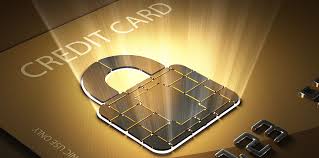10 Ways to Prepare for a Personal Financial Crisis
The thought of being hit with a major negative event that could affect your finances, such as a job loss, an illness, a car accident—or a pandemic—can keep anyone awake at night. However, the prospect of something expensive and beyond your control happening becomes less threatening if you’re properly prepared. Here are 10 steps for how to deal with an economic crisis.
KEY TAKEAWAYS
Having a monthly budget is essential to keeping track of your financial health.
Scrutinize your bills to see where you might be spending money you don’t have to spend and pay them on time.
Make it a priority to pay down your credit card debt and look for cards with low interest rates.
Do the proper maintenance on everything from your home to your health to avoid expensive problems down the road.
1. Maximize Your Liquid Savings
Cash accounts, such as checking, savings, and money market accounts—as well as certificates of deposit (CD) and short-term government investments—will help you the most in a crisis. You’ll want to turn to these resources first because their value doesn’t fluctuate with market conditions, unlike stocks, index funds, exchange traded funds (ETFs), and other financial instruments in which you might have invested.
This means you can take your money out at any time without incurring a financial loss. Also, unlike retirement accounts, you won’t face early withdrawal penalties or incur tax penalties when you withdraw your money, except for CDs, which usually require you to forfeit some of the interest you’ve earned if you close them early.
Don’t invest in stocks or other higher-risk investments until you have several months’ worth of cash in liquid accounts. How many months’ worth of cash do you need? It depends on your financial obligations and risk tolerance.
If you have a major obligation, such as a mortgage or a child’s ongoing tuition payments, you might want to have more months’ worth of expenses saved up than if you’re single and renting an apartment. A three-month expense cushion is considered a bare minimum, but some folks like to keep six months or even up to two years’ worth of expenses in liquid savings to guard against a long bout of unemployment.
2. Make a Budget
If you don’t know exactly how much money you have coming in and going out each month, you won’t know how much money you need for your emergency fund. And if you aren’t keeping a budget, you also have no idea whether you’re currently living below your means or overextending yourself. A budget is not a parent—it can’t and won’t force you to change your behavior—but it is a useful tool that can help you decide if you’re happy with where your money is going and where you stand financially.
3. Prepare to Minimize Your Monthly Bills
You might not have to do it now, but be ready to start cutting out anything that is not a necessity. If you can get your recurring monthly expenses as low as they can be, you’ll have less difficulty paying your bills when money is tight.
Start by looking at your budget to see where you might currently be spending more money than necessary. For example, are you paying a monthly fee for your checking account? Explore how to switch to a bank that offers free checking. Are you paying $40 a month for a landline you rarely use? Learn how you might cancel it or switch to a lower rate emergency-only plan. You might find ways you can start cutting your costs now just to save money.
Maybe you’re in the habit of letting the heater or air conditioner run when you’re not home or leaving lights on in rooms you aren’t using. You may be able to trim your utility bills. Now might also be a good time to shop around for lower insurance rates and find out if you can cancel certain types of insurance, such as car insurance, in the event of an emergency. Some insurance companies might give you an extension, so look for the steps involved and be prepared.
4. Closely Manage Your Bills
There’s no reason to waste money on late fees or finance charges, yet families do it all the time. During a job loss crisis, you should be extra studious in this area. Simply being organized can save you a lot of money when it comes to your monthly bills. One late credit card payment per month could set you back $300 over the course of a year. It could even get your card canceled at a time when you might need it as a last resort.
Set a date twice a month to review all your accounts, so you don’t miss any due dates. Schedule electronic payments or mail checks so that your payment arrives several days before it’s due. This way, if a delay occurs, your payment will probably still arrive on time. If you’re having trouble keeping track of all your accounts, start compiling a list. When your list is complete, you can use it to make sure you’re on top of all your accounts and to see if there are any you can combine or close.
Don’t neglect your non-cash assets, such as frequent flier miles, credit card rewards points, and gift cards.
5. Take Stock of Your Non-Cash Assets and Maximize Their Value
Being prepared might include identifying all of your options. Do you have frequent flyer miles you can use if you need to travel? Do you have extra food in your house that you can plan meals around to lower your grocery bills? Do you have any gift cards you can put toward entertainment or sell for cash? Do you have rewards from a credit card that you can convert to gift cards? All these assets can help you lower your monthly expenses, but only if you know what you have and use it wisely. Knowing what you have can also prevent you from buying things you don’t need.
6. Pay Down Your Credit Card Debt
If you have credit card debt, the interest charges you’re paying every month probably take up a significant portion of your monthly budget. If you make it a point to pay down your credit card debt, you will reduce your monthly financial obligations and put yourself in a position to start building a better nest egg. Getting rid of interest payments frees you to put your money toward more important things.
7. Get a Better Credit Card Deal
If you’re currently carrying a balance, it could really help you to transfer that balance to another card with a lower rate. Paying less interest means that you can pay off your total debt faster and/or gain some breathing room in your monthly budget. Just make sure that what you save from the lower interest rate is greater than the balance transfer fee. If you’re transferring your balance to a new card with a low introductory annual percentage rate (APR), aim to pay off your balance during the introductory period, before your rate goes up.
It’s also worth asking if your current credit card company will lower your monthly interest rate. Sometimes companies will do this to keep you as a customer; it’s cheaper for them to keep an existing customer than it is to recruit a new one.
There are always ways for you to earn extra money, whether it’s selling unneeded possessions, freelancing in your off hours, or even getting a second job.
8. Look for Ways to Earn Extra Cash
Everyone has something they can do to earn extra money, whether it’s selling possessions you no longer use (either online or in a garage sale), babysitting, chasing credit card and bank account opening bonuses, freelancing, or getting a second job. The money you earn from these activities may seem insignificant compared to what you earn at your primary job, but even small amounts can add up to something meaningful over time. Besides, many of these activities have side benefits: You might end up with a less cluttered house or discover that you enjoy your side job enough to make it your career.
9. Check Your Insurance Coverage
In step three we recommended shopping around for lower insurance rates. If you’re carrying too much insurance—or could be getting the same coverage from another provider for a better price—these are obvious changes you can make to lower your monthly bills.
That being said, having excellent insurance coverage can prevent one crisis from piling on top of another. It’s also worth making sure that you have the coverage you really need and not just a bare minimum. This applies to policies you already have, as well as to policies you may need to purchase. A disability insurance policy can be indispensable if you sustain a significant illness or an injury that prevents you from working, and an umbrella policy can provide coverage where your other policies fall short.
10. Keep Up With Routine Maintenance
If you keep the components of your car, home, and physical health in top condition, you can catch problems while they’re small and avoid expensive repairs and medical bills later. It’s cheaper to have a cavity filled than to get a root canal, easier to replace a couple of pieces of wood than to have your house tented for termites, and better to eat healthy and exercise than end up needing expensive treatments for diabetes or heart disease. You might think you don’t have the time or money to deal with these things on a regular basis, but they can create much larger disruptions of your time and finances if you ignore them.
The Bottom Line
Life is unpredictable, but if there’s anything you can do to stave off disaster, it’s to be prepared and careful. With the right preparation you can turn a potential financial tragedy into a merely temporary setback.
اكتشاف المزيد من استشارات اون لاين
اشترك للحصول على أحدث التدوينات المرسلة إلى بريدك الإلكتروني.





